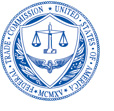Identity Theft and Debt Collection
A debt collector may contact you if an identity thief opens accounts in your name and doesn’t pay the bills. To stop contact and collection action, get in touch with the debt collector, the business that opened the fraudulent account, and the credit reporting companies.
Dispute a Debt
The law prohibits debt collectors from using unfair or deceptive practices to collect overdue bills that a creditor has forwarded for collection, whether those bills result from identity theft or not. Follow these steps to dispute fraudulent debts.
How to Dispute a Debt with a Debt Collector
- Write to the debt collector within 30 days after you get written notice of the debt.
- Tell the debt collector you are a victim of identity theft and don’t owe the debt.
- Send copies of your police report, Identity Theft Report, or other documents that detail the identity theft. The collector must suspend collection efforts until it sends you written verification of the debt. If the collector works for another company, it must tell the other company you are an identity theft victim. There are additional steps you can take to stop calls and letters from a debt collector.
- Contact the business where the fraudulent account was opened.
- Explain that this is not your debt.
- Ask for information about the transactions that created the debt. The business must give you details about the transaction if you ask. For example, if you dispute a debt on a credit card account you did not open, ask for a copy of the application and applicant’s signature.
- Contact each of the three nationwide credit reporting companies.
- Take steps to have fraudulent information blocked from your credit report to stop a business from selling or transferring a debt for collection.
- Update your files.
- Record the dates you made calls or sent letters.
- Keep copies of letters in your files.
Stop a Debt Collector from Selling or Transferring a Debt
Follow the instructions to Block Information from Your Credit Report. After each credit reporting company accepts your Identity Theft Report, it must tell the debt collector that the debt might have been caused by identity theft. Then, the debt collector can’t sell or transfer the debt or report it to a credit reporting company.
Stop Calls and Letters from a Debt Collector
- Write a letter to the debt collector. Our sample letter can help.
- Tell them to stop contacting you about the debt.
After the debt collector gets the letter, it can’t contact you again, except once — to say it won’t contact you again, or that it plans to take specific action. Sending this letter should stop calls and letters from the collector, but it doesn’t prevent the debt collector from suing you to collect the debt. To stop collection action, follow the steps to Block Information from Your Credit Report.
- Tell them to stop contacting you about the debt.
- Update your files.
- Record the dates you made calls or sent letters.
- Keep copies of letters in your files.




